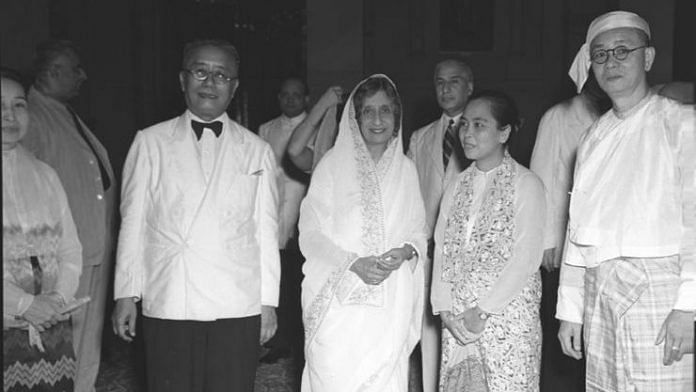On her 130th birth anniversary, ThePrint looks at the life of the princess who helped establish the All India Institute of Medical Sciences .
New Delhi: Mahatma Gandhi clarion call for India’s independence echoed across lines of class, religion and gender. In 1936, as Gandhi sought to include more women in the nationalist movement, he wrote to Rajkumari Amrit Kaur, the woman who would go on to become independent India’s first health minister — “I am now in search of a woman who would realise her mission. Are you that woman, will you be one?”
And she was. After Kaur’s return from Oxford in 1918, she decided her life’s mission was to transform India — breaking not only the colonial chains that bound it, but also the oppressive social norms that limited it.
On her 130th birth anniversary, ThePrint looks at the life of the princess who served as Mahatma Gandhi’s secretary for nearly 17 years and helped establish India’s premier hospital and medical college, All India Institute of Medical Sciences (AIIMS).
The Gandhian princess
Born on 2 February, 1889, to the royal family of Kapurthala, Kaur grew up in a Christian household as her father converted to Christianity before she was born, and her mother was a Bengali Christian.
Kaur spent her early years in Kapurthala, Punjab, and then moved to Sherborne School in Dorset, UK. She excelled at the school, was the “head girl” and the captain of the cricket, hockey and lacrosse team. She spent her undergraduate years at Oxford.
At 20, Kaur returned to India. She was fascinated by the teachings of the Mahatma, and although she would only meet him in 1919, she wrote to him regularly. This would go on to become one of the most enduring epistolary relationships that is documented in Letters to Rajkumari Amrit Kaur. Her parents’ objection to her joining the freedom struggle is what kept Kaur away till 1930, when her father passed away.
However, even without formally joining Gandhi, Kaur had already begun to wage her battle against social evils like the purdah system, child marriage and the devadasi system.
In 1927, Kaur helped found the All India Women’s Conference (AIWC), an organisation that has since dedicated itself to women empowerment.
Two years later, she dedicated herself to the civil disobedience movement and moved to Sevagram in Wardha. Around the same time, she was asked by Gandhi to become his secretary, a post she would retain for 17 long years.
“Rajkumari Amrit Kaur belonged to a generation of pioneers. They belonged to well-to-do homes but gave up on their affluent and sheltered lives and flocked to Gandhiji’s banner when he called women to join the national liberation struggle,” wrote independence activist Aruna Asaf Ali.
Gandhi would affectionately use the epithet ‘idiot’ or ‘rebel’ for Kaur, and would sign his letters as ‘robber’ and ‘tyrant’, respectively. They developed such a lasting friendship that they continued to write to each even during their jail terms after the Quit India Movement.
Also read: Remembering Debendranath Tagore: Son of a Prince, father of Gurudev & founder of a religion
A wide-ranging career
In 1947, Jawaharlal Nehru called upon Kaur to join his cabinet as the first health minister of independent India. Kaur was also among the few women who were part of the Constituent Assembly.
As Kaur took over the health portfolio, a post she would retain for 10 years, she helped lay the foundation of AIIMS.
She also served as the president of the Indian Leprosy Association and the Tuberculosis Association, vice-president of the International Red Cross Society and chief commissioner of the St. John’s Ambulance Brigade of India.
She was also the founder and the first president of the Indian Council for Child Welfare that “touches the lives of hundreds and thousands of disadvantaged children in our country.” She even turned her ancestral estate in Shimla into a retreat for the nurses from AIIMS.
Kaur passed away on 6 February, 1964, at the age of 75. Even though she was a Christian, she was cremated according to Sikh rituals at the banks of the Yamuna in the national capital.




How one born on 2 February, 1989, can become a Minister in 1947 ???
Thank you for pointing this out. The oversight has been rectified.